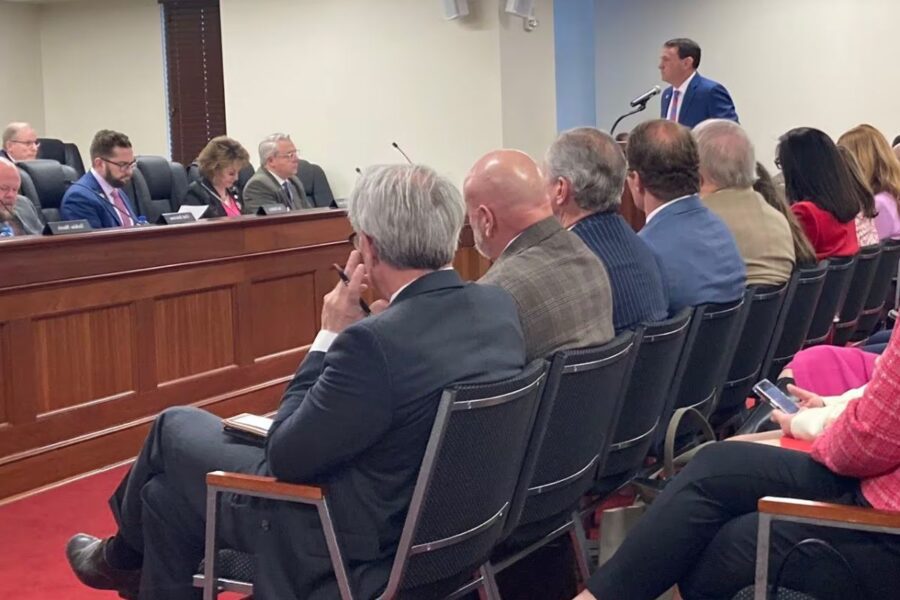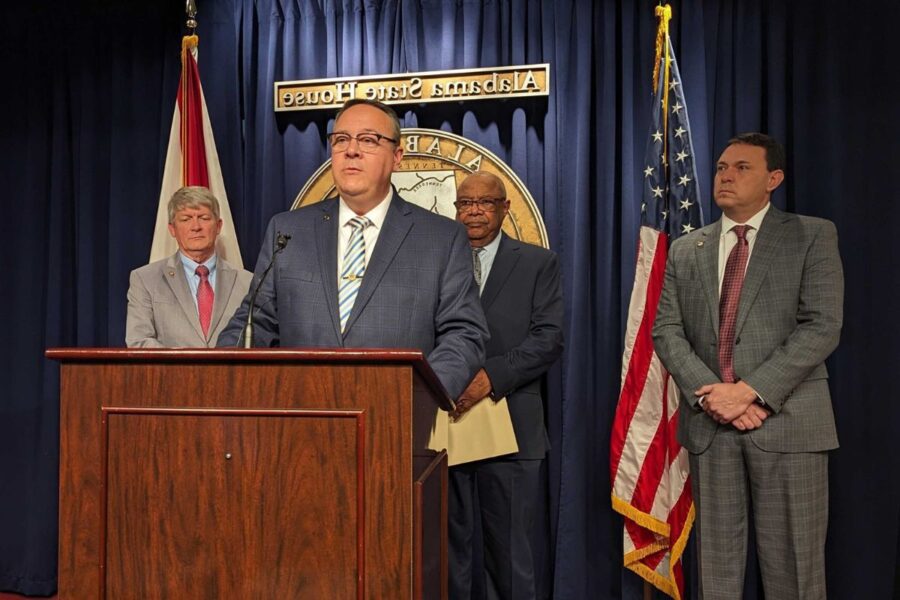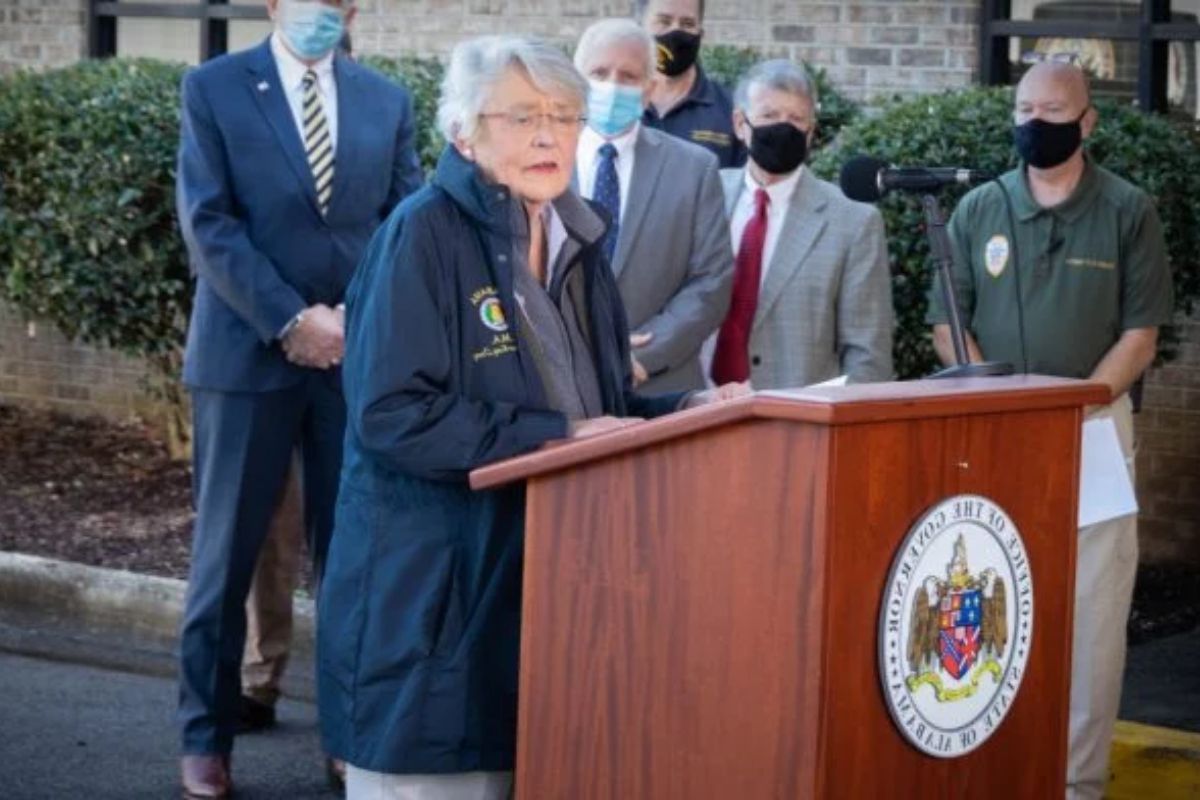Alabama House Controversial Gambling: The recent advancement of the casino, lottery, and sports betting bill by the Alabama House marks a significant development in the state’s gaming landscape. This bill not only signals a potential shift in economic opportunities but also underscores the intricate regulatory frameworks that would need to be established.
The creation of regulatory entities, taxation structures, and revenue allocation mechanisms are crucial components awaiting detailed examination. Furthermore, the bill’s provisions on tribal inclusion and the associated concerns introduce complexities that hold implications beyond the gaming industry.
Key Takeaways
- Alabama pursues comprehensive gaming legislation with HB 152.
- Economic opportunities and development drive legislative support.
- Establishment of regulatory bodies like the Alabama Gaming Commission.
- Concerns and discussions surround tribal inclusion and gaming compact provisions.
Advancements in Alabama Gaming Legislation
Advancing amidst deliberations in the Alabama legislature, significant progress has been made in shaping the landscape of gaming legislation within the state. House Bills 152 and 151, spearheaded by Rep. Chris Blackshear and Andy Whitt, are at the forefront of this movement. HB 152 specifically targets the authorization and regulation of sports wagering, a state lottery, and casino-style games in Alabama. The introduction of these bills marks a pivotal moment in the state’s history, as they seek to establish a comprehensive framework for gaming and lottery activities.
Through these legislative proposals, Alabama aims to tap into the economic potential of the gaming industry while addressing the demand for legalized gambling options within its borders. The intricate details of the bills reflect a thorough consideration of various stakeholders’ interests, regulatory concerns, and potential societal impacts. As the discussions unfold in the legislature, stakeholders are closely monitoring the developments to assess the implications of these advancements on Alabama’s gaming landscape.
Committee Approval for Economic Development
The recent favorable vote by the Alabama House Economic Development Committee for HB 152 signifies a significant step towards advancing economic opportunities through proposed gaming legislation in the state. This approval reflects growing support for initiatives aimed at enhancing economic development through the gaming industry. The committee’s decision is crucial in paving the way for potential job creation, revenue generation, and overall economic growth in Alabama.
- The approval of HB 152 underscores the committee’s recognition of the economic benefits associated with expanded gaming options.
- The support for HB 151 indicates a willingness to explore constitutional amendments that could further boost economic development through regulated wagering activities.
- Committee members have shown a strategic understanding of how gaming legislation can positively impact the state’s economic landscape.
- The favorable vote aligns with broader efforts to diversify Alabama’s economy and attract new investments.
- This decision sets the stage for continued discussions on how gaming initiatives can serve as catalysts for economic progress in the region.

READ MORE: Alabama Casino Contemplation: The Prospects for DeKalb and Jackson Counties
Creation of Regulatory Entities
Efficiently orchestrating the implementation of regulatory bodies is paramount to ensuring the effective oversight of wagering activities in Alabama as outlined in HB 152. The bill proposes the establishment of the Alabama Gaming Commission, tasked with regulating various forms of gambling, and the Alabama Lottery Corporation, which would oversee the state lottery operations. Furthermore, a Gaming Enforcement Division is set to be formed to diligently monitor and prevent any illicit wagering activities within the state.
To provide a visual representation of the regulatory entities proposed in HB 152, the table below outlines the key bodies and their respective roles:
| Regulatory Entity | Purpose | Responsibilities |
|---|---|---|
| Alabama Gaming Commission | Regulate various forms of gambling | Grant licenses, enforce regulations |
| Alabama Lottery Corporation | Oversee state lottery operations | Conduct lottery draws, ensure compliance |
| Gaming Enforcement Division | Monitor and prevent illicit activities | Investigate complaints, enforce anti-gambling laws |
These entities are crucial in upholding the integrity of the gambling industry in Alabama and safeguarding against potential abuses.
Taxation and Revenue Allocation
A substantial portion of the proposed gambling legislation in Alabama focuses on determining tax rates and outlining revenue allocation strategies for different forms of gambling activities. The legislation suggests a 24% tax rate for casino-style gaming, with 95% of the revenue directed to a gaming trust fund. Similarly, sports betting would be taxed at a 17% rate, primarily contributing to the same fund. The trust fund allocation includes provisions for mental health care, drawing support from advocacy groups.
Revenue Allocation Strategies:
- Casino-style gaming taxed at 24%, with 95% revenue directed to a gaming trust fund.
- Sports betting taxed at 17%, primarily contributing to the gaming trust fund.
- Trust fund allocation includes provisions for mental health care.
- Advocacy groups support the allocation strategies.
- The remaining percentage of tax revenue is allocated to other public services and initiatives.
Tribal Inclusion and Concerns
With the legislative focus shifting towards Tribal Inclusion and Concerns, HB 152’s provisions for a gaming compact with the Poarch Band of Creek Indians have sparked apprehensions among tribal leaders regarding profit-sharing agreements and potential implications on tribal enterprises.
The concerns stem from uncertainties surrounding the distribution of gaming revenues and the extent of tribal autonomy within the proposed framework. Tribal leaders are wary of any provisions that may compromise their sovereignty or hinder the economic stability of tribal operations.
Moreover, the potential impacts on existing tribal gaming facilities and revenue streams are subject to scrutiny, with stakeholders emphasizing the need for fair and equitable arrangements that uphold tribal interests.
As HB 152 progresses to the House floor for further deliberation, the intricacies of the gaming compact with the Poarch Band of Creek Indians will undoubtedly be a focal point of discussion, reflecting the complex interplay between state regulations and tribal rights in the realm of gambling legislation.

Conclusion Of Alabama House Controversial Gambling
The advancement of the casino, lottery, and sports betting bill in the Alabama House marks a significant step towards potential economic growth and development in the state.
The creation of regulatory entities, taxation and revenue allocation plans, and inclusion of tribal concerns demonstrate a comprehensive approach to addressing various interests and ensuring a fair and regulated gaming environment.
This legislation has the potential to bring about positive changes and opportunities for Alabama’s economy and communities.
Our Reader’s Queries
Is casino gambling legal in Alabama?
Alabama’s gambling regulations are stringent, allowing betting only on greyhound dog racing and, potentially, horse racing if approved via a local referendum. However, casino-style gaming, including roulette, poker, craps, and slot machines, remains prohibited in the state.
Will sports betting be legal in Alabama?
Sports betting is still illegal in Alabama despite various attempts to legalize it in previous years, including efforts in 2019, 2021, and 2022. The state lacks commercial casinos, with only three tribal casinos operated by the Poarch Band of Creek Indians.
Is lottery illegal in Alabama?
The 1901 Constitution of Alabama explicitly prohibits lotteries and games of chance. However, certain local amendments have permitted various forms of gaming, commonly found at dog tracks across the state.
What gambling is legal in Alabama?
Alabama has permitted bingo and parimutuel betting in specific locations through local constitutional amendments. Consequently, the Poarch Band of Creek Indians can partake in bingo and parimutuel betting on tribal properties located in Atmore, Wetumpka, and Montgomery.

